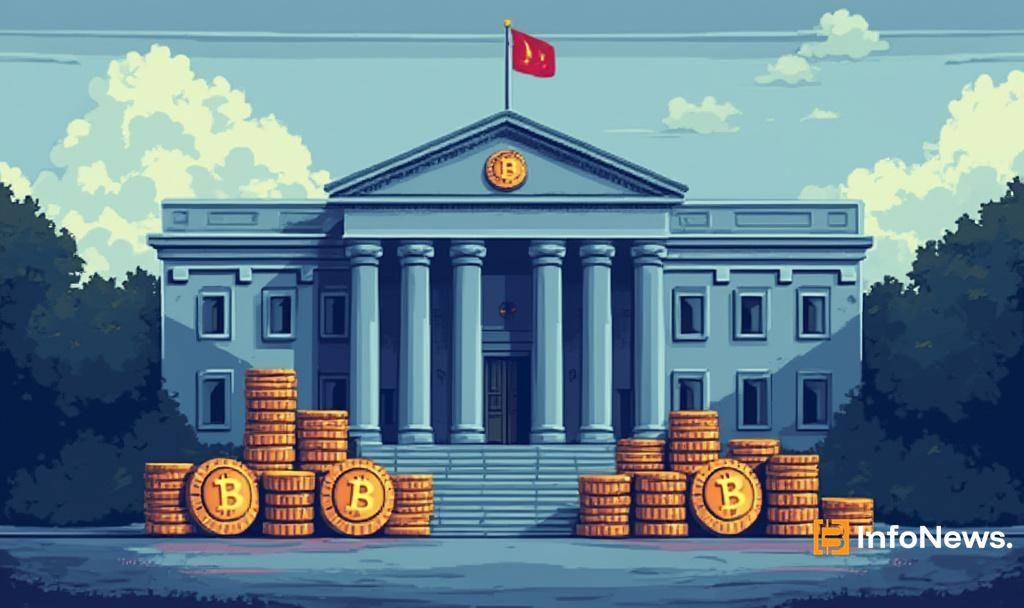U.S. Establishes Strategic Bitcoin Reserve in Policy Shift
- The U.S. adopts policy to hold Bitcoin as reserves.
- Seized Bitcoin retained, not auctioned.
- Potential increase in institutional crypto legitimacy.

The United States was revealed to be planning the strategic accumulation of Bitcoin through a March 2025 executive order, intending to hold seized digital assets within its reserves.
This policy shift signifies a potential rise in Bitcoin’s institutional acceptance, impacting market dynamics and aligning the U.S. with global trends in digital asset management.
The United States has initiated a policy shift to retain seized Bitcoin as part of its official reserves, following a March 2025 executive order.
This decision marks an institutional step in integrating digital assets into national reserves, potentially affecting market dynamics.
U.S. Integrates Seized Bitcoin into Reserves
The U.S. government has implemented a new policy regarding digital assets, specifically Bitcoin. This involves using seized Bitcoin as part of a strategic reserve, a significant change from previous practices.
The decision originated from a March 2025 Presidential Executive Order. This order does not involve new purchases but signals a strategic approach toward retaining previously seized crypto assets.
Shift in Bitcoin Auctions Sparks Market Reactions
This move may influence the crypto markets, potentially boosting the legitimacy of digital assets. It shifts previous auction practices, affecting how assets like Bitcoin are viewed institutionally.
Evolving policies could lead to broader adoption of cryptocurrencies within governmental frameworks. Financial strategies are being developed to utilize these assets effectively without increasing taxpayer burden. “Nineteen officials personally own between $875,000 and $2.35 million in crypto assets, reflecting potential alignment with reserve policy.”
U.S. Joins Global Bitcoin Reserve Holders
Historically, the U.S. had auctioned seized Bitcoin, unlike countries like El Salvador, which publicly hold Bitcoin. This decision indicates a new direction for a Tier-1 global currency nation.
Historical data suggest that governmental recognition of Bitcoin can enhance market stability. Experts regard this shift as a step toward integrating cryptocurrencies into traditional financial systems.
| Disclaimer: The information on this website is for informational purposes only and does not constitute financial or investment advice. Cryptocurrency markets are volatile, and investing involves risk. Always do your own research and consult a financial advisor. |



